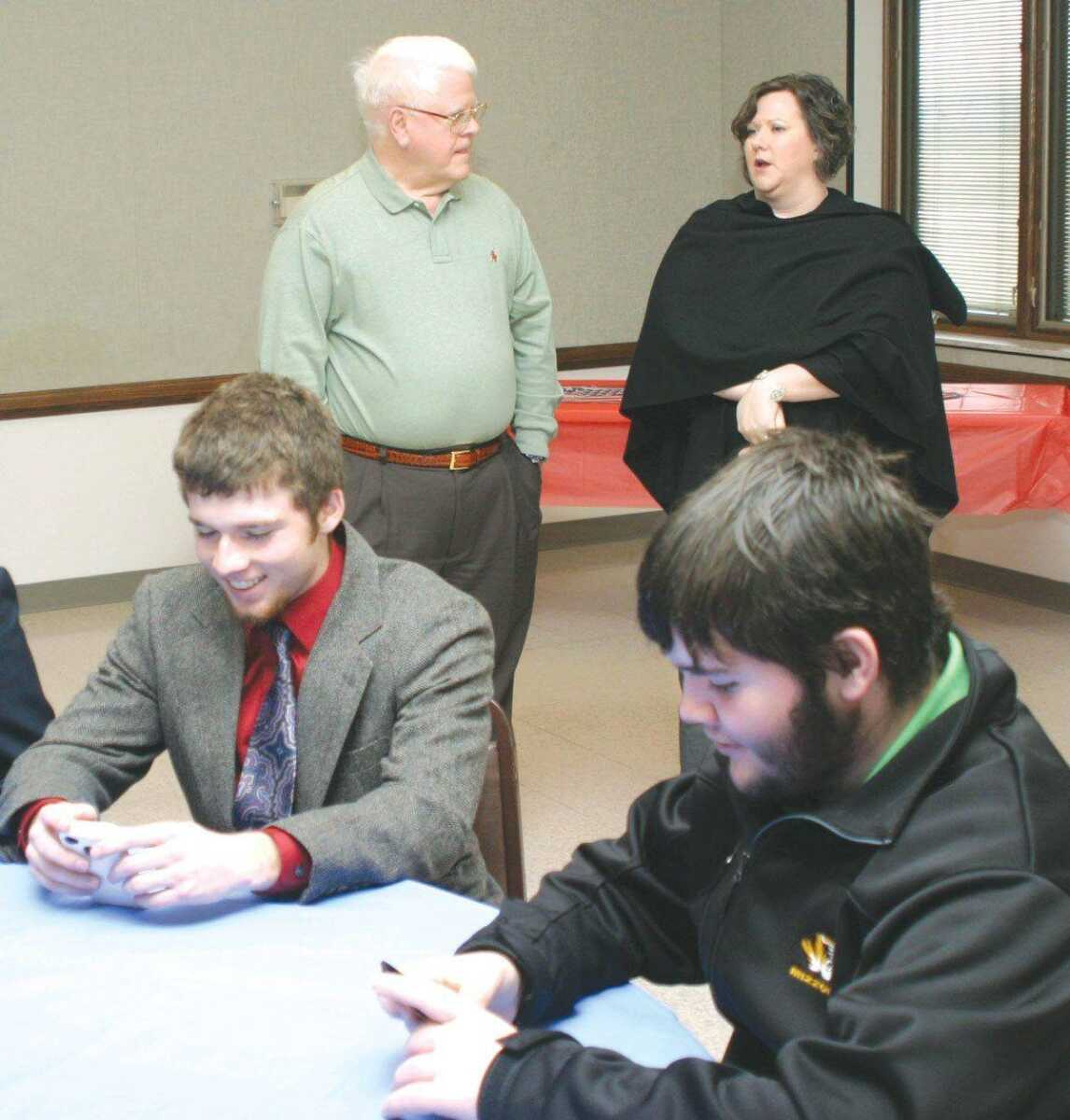Teens tackle texting issue in government
SIKESTON, Mo. -- Participants in this year's Youth in Government Day learned about local government while demonstrating they have what it takes to find solutions. The topic for the mock city council meeting held Feb. 24 as part of the annual event was whether the city should enact an ordinance which makes it illegal to text while operating a motor vehicle within city limits...
SIKESTON, Mo. -- Participants in this year's Youth in Government Day learned about local government while demonstrating they have what it takes to find solutions.
The topic for the mock city council meeting held Feb. 24 as part of the annual event was whether the city should enact an ordinance which makes it illegal to text while operating a motor vehicle within city limits.
On one side of the issue are national statistics that show driving while distracted is a factor in 25 percent of crashes reported to police with the No. 1 source of driver inattention being the use of wireless devices.
And the most dangerous use of wireless devices is texting: in the five seconds it takes to read an average text message, a vehicle on the highway travels about 100 yards.
As the director of public safety during the mock council meeting, Conor MacGillivray pointed out that three troopers in the state were killed in 2007 by distracted drivers.
"It's not safe," MacGillivray said of texting behind the wheel.
Public safety officials maintain that even talking on a cellphone with a headset or a vehicle's hands-free feature is a distraction.
"Those using hands-free devices are still distracted drivers -- and even experienced drivers are still distracted," said Ryan Norton in the role of the Sikeston Department of Public Safety's patrol division captain. "There's not really an urgent need to be talking or texting while driving: it can wait."
On the other side of the issue were those who say that life behind the wheel is full of distractions and that a good driver should not be punished because some people aren't able to safely handle their vehicle when distracted.
Dylan Smith, who also played a member of the public, came up with "a compromise between the two sides of the argument" while also addressing concerns a ban on texting would tie up police officers who should focus on more serious violations.
"I made the point that we should have a ban on texting while driving but only on a secondary enforcement basis," Smith said. "That means you couldn't be pulled over solely for that reason but if you were texting while pulled over for another reason you would be ticketed for it."
This way, Smith said, those who are able to text without driving poorly won't be cited while having the texting ban on the books as a secondary offense will provide officers with a way to deal with "those swerving drivers."
The mock city council agreed it was an acceptable solution.
"We amended our resolution to make it a secondary enforcement offense," said Jasmine Adams, mayor for the mock city council. "You have to be in violation of something else like reckless driving to be cited for texting while driving."
MacGillivray, who had also voiced concerns about the cost for DPS to enforce a ban on texting while driving, said he was OK with the ban being implemented as a secondary offense.
The difference between primary and secondary offenses, such as seat belt violations, was brought up during a briefing session for students Tuesday, said Linda Lowes, director of governmental services and the city staffer who planned and coordinated the event for the city. But the idea to amend the resolution came from the students themselves.
"I think they were very creative," Lowes said. "They were willing to compromise and look at alternate ways to achieve a goal. I thought they showed a great amount of maturity in that they could devise a compromise and agree on it."
"I thought they participated very well," said Ronda Smith, president of the Sikeston Optimist Club, the event's sponsors.
Smith said this year's issue was "very pertinent -- particularly to this age group."
Lucas Houchin, who participated in the role of DPS's special operations captain, said he was against a ban on texting before Friday's mock city council meeting but was won over by the facts that were presented during the Youth in Government experience.
"I know people won't agree with it but it is for their safety," Houchin said.
While many of his generation are able to text messages with one hand faster than their parents can with two, Houchin said he been startled when returning his eyes to the road after looking at his phone for only a second.
"Each of you has the ability to change the world," said Wende Pruden, vice president of the Sikeston Optimists.
Pruden encouraged participants to take an active role in real local government.
scottw@standard-democrat.com
Connect with the Southeast Missourian Newsroom:
For corrections to this story or other insights for the editor, click here. To submit a letter to the editor, click here. To learn about the Southeast Missourian’s AI Policy, click here.










